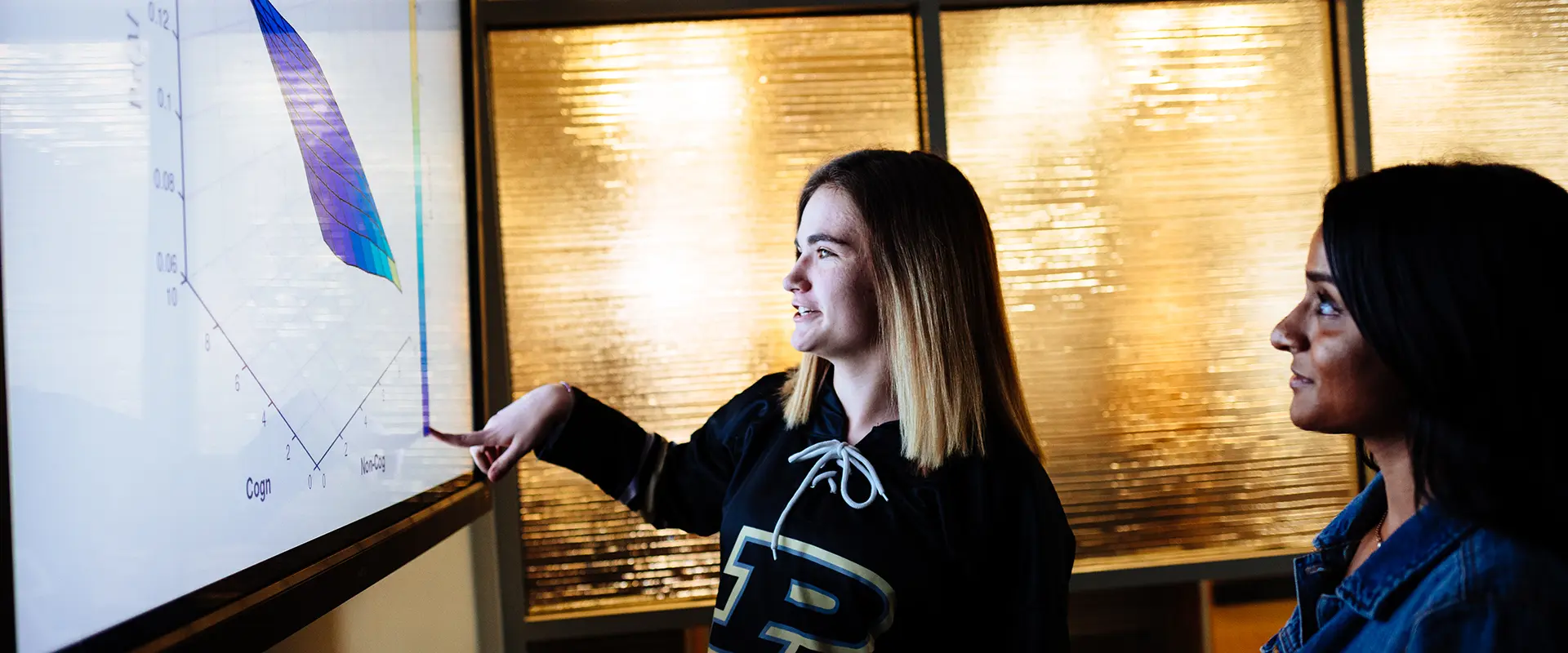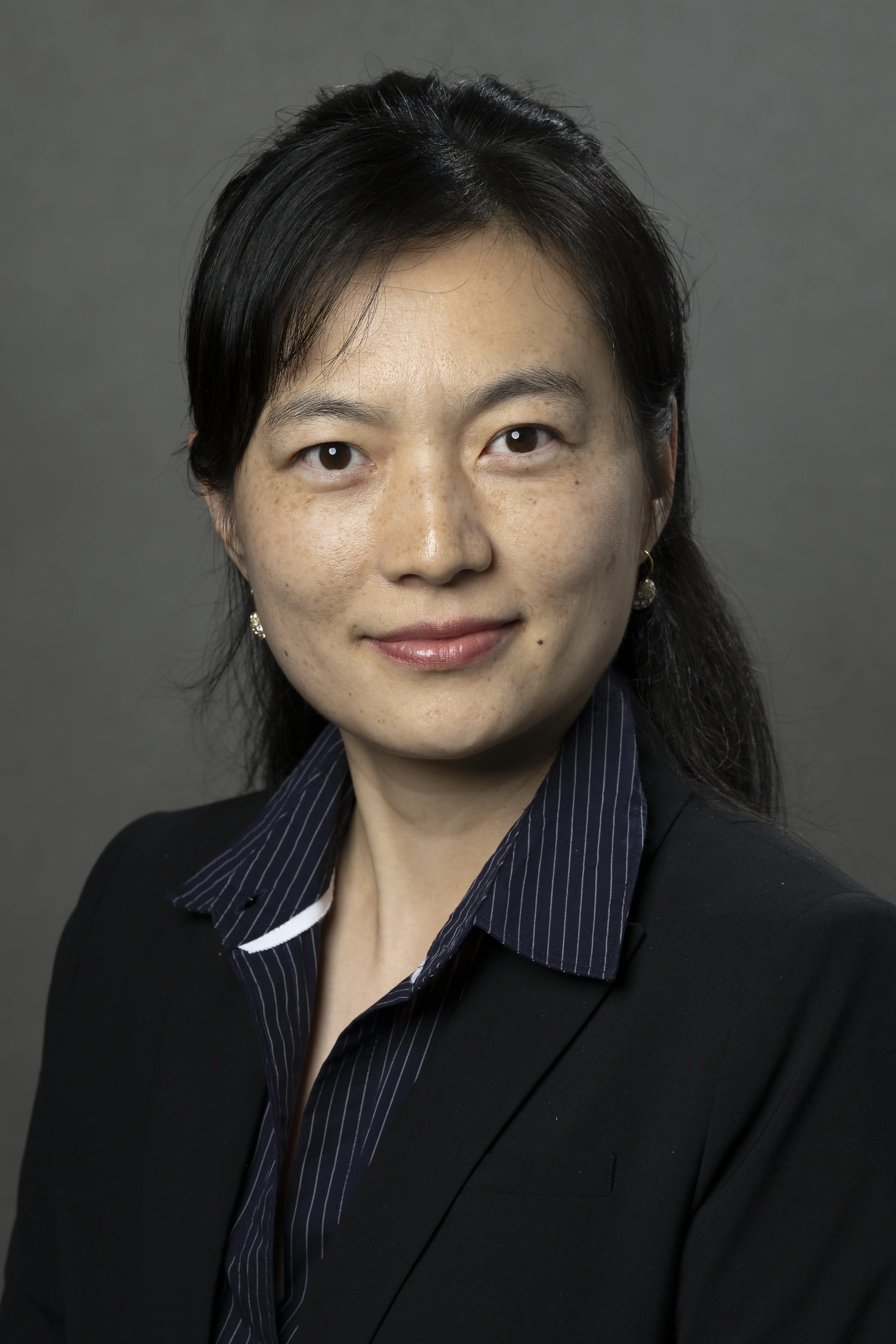
Perhaps no other experiential learning opportunity for Daniels School of Business students exceeds the seniors’ spring semester capstone project. With their capstone project, business students synthesize the range of knowledge and skills they’ve gained during their undergraduate studies, demonstrating their readiness to enter the workforce. Capstone projects are high-value opportunities for both students and partnering organizations.
“Students are excited to deliver analytical solutions to real customer from the real world,” says Xing Wang, clinical assistant professor in management. Wang oversees capstone projects for the Business Analytics and Information Management (BAIM) course MGMT 47800, interpreting what companies need and putting together the student teams to meet the challenge.

In spring 2024, Wang worked with Adrian Hernandez of Applied Materials, leading semiconductor fabrication equipment maker. “We make the machines that make the chips used in nearly every electronic in the world right now,” says Hernandez.
As program manager for Applied Materials’ Early Career Development program in the supply chain division, Hernandez says the semiconductor industry expects to double in the next few years, so building a strong talent pipeline is a key strategic initiative. The Early Career Development program includes working with universities on capstone projects, providing summer internship opportunities and maintaining a robust new college graduate rotational program.
In his role, Hernandez connects universities like Purdue with teams in his organization that are seeking fresh insights. In recent years, Applied Materials has worked with Purdue’s College of Engineering, but this year, they sought out Daniels School of Business students, looking for forecasting solutions to optimize their supply chain.
“We said, we have a way that we forecast our products, but we know it’s an area of continual growth for us. We would like to see your thoughts,” says Hernandez. Applied Materials provided a small portfolio with historical data on sales for a particular product, to get the students started.
“We don’t necessarily expect to come out of a capstone partnership with a solution that changes our business process,” says Hernandez. However, the Daniels School team produced results that Applied Materials found extremely compelling.
When the university students presented their solution, various teams from Hernandez’s organization were invited to listen in, including Paul Chhabra, vice president of worldwide operations and Purdue alum. The students impressed him by proposing a fresh model and some real opportunities to investigate further.
The Daniels School team led to the ideal outcomes for Applied Materials: fresh ideas and talent potential.
“We had a group from our data analytics organization join us for the final presentation and they liked what they heard,” says Hernandez.
The outcomes for Applied Materials and Daniels School students highlight why companies approach the Business Partnerships Office for collaborative partnerships. The office facilitates collaborations, connecting companies with faculty-led teams from IBE, business analytics and information management (BAIM) and other programs.
“Companies bring one of their challenging problems to us, so it’s a win-win situation. By leveraging the students’ credits, they benefit from labor and ideas,” says Wang. “Our program is strong in data science optimization and analytical solution development. We want to deliver useful solutions and make an impact for companies. But we also bring talent recruiting. It saves them time.”
Companies learn the students’ work habits, skillsets, presentation and communication skills, giving them in-depth insights, far exceeding a mere resume review.
The Daniels School’s Business Partnerships office has fine-tuned the process of developing company relationships. After a company reaches out, Daniels School staff and faculty sit down with company partners, determine the project’s scope and deliverables, and find a match with that semester’s students, their capabilities and interests. They generate a project timeline, the hours required and meeting schedule. They set short- and long-term goals and define the non-disclosable details. Before the semester begins, companies usually provide the data necessary to complete the project. Throughout the semester, faculty monitor students, provide inputs and keep the project moving. Companies can work with both undergraduate and graduate students.
“You can’t do much better to impress a company than to do more than what they expected,” says Wang of the outcome for Applied Materials. “In this situation, Applied Materials introduced itself to potential talent, and the own technical team was able to incorporate new ideas.”
For more information on how to pair your organization with this course or others, contact the Business Partnerships Office.
The Integrated Business and Technology (IBE) program is now seeking corporate partners for capstone projects. Reach out to Matthew Lynall at mlynall@purdue.edu for more information.